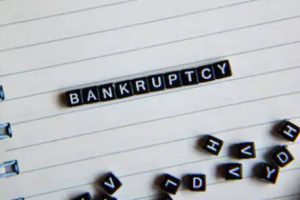Chapter 13 Bankruptcy: How Do I Qualify?

During the height of the coronavirus pandemic, many mortgage lenders offered payment deferrals and other relief packages. As 2021 dawns and these promotions end, these banks will swiftly demand deferred payments which, as far as they are concerned, are now past-due payments. Legally, banks can initiate foreclosure proceedings immediately in these cases.
Fortunately for these distressed debtors, most people qualify for Chapter 13 bankruptcy. This federal debt relief program immediately stops foreclosure and most other adverse creditor actions. Furthermore, Chapter 13’s protected repayment period lasts up to five years. This time period gives most families ample opportunity to erase past-due mortgage payments and other secured debt delinquency.
Formal Qualifications
All bankruptcy petitioners must complete a pre-filing credit counselling class. By the time they reach out to us, most debtors have already completed such a course. If they must do so, the class is usually available online. These online classes only cost a few dollars and only take a few minutes.
Similarly, all petitioners must complete a post-fling debt management class. Many people take this class online. Others take advantage of trustee-sponsored seminars. These seminars usually last an hour or more. But they are free, and many debtors find nuggets of wisdom that help them quickly raise their credit scores.
Chapter 13’s financial qualifications are probably the biggest barrier. And, these qualifications rarely prevent people from filing. Under federal law, the Chapter 13 filer’s secured debt load must be less than $1.25 million. The debtor’s unsecured debt load must be less than $420,000. These limits are usually not a problem, unless the debtor lives in a mansion or there or other extraordinary circumstances.
Informal Qualifications
In addition to these formal qualifications, there are also some informal qualifications. These qualifications vary slightly in different jurisdictions.
During the aforementioned protected repayment period, Chapter 13 debtors must remit a monthly debt consolidation payment to the trustee (person who oversees the bankruptcy for the judge). This payment must be large enough to erase all secured debt delinquency, along with certain unsecured obligations, such as past-due child support payments, before the protected repayment period ends.
So, debtors must prove that they have sufficient income to comfortably make this payment. The monthly income they declare in Schedule I must be substantially higher than the monthly expenses they list in Schedule J. To achieve this balance, many debtors must eliminate most entertainment expenses and increase their incomes, perhaps by becoming an Uber driver or picking up another side hustle.
If this informal qualification is an issue, or becomes an issue later because financial circumstances change, debtors have several options. Many choose to convert to Chapter 7. The monthly payments end, and debtors receive a fresh financial start almost immediately.
An attorney might also be able to successfully file a motion to reduce the monthly payment. These motions have a better chance of succeeding if the initial payment was slightly higher than necessary. In these situations, the debtor has some wiggle room.
Reach Out to Dedicated Lawyers
Most people qualify for Chapter 13 bankruptcy. For a free consultation with an experienced bankruptcy attorney in Chicago, contact the Bentz Holguin Law Firm, LLC. After hours, virtual, and home visits are available.


